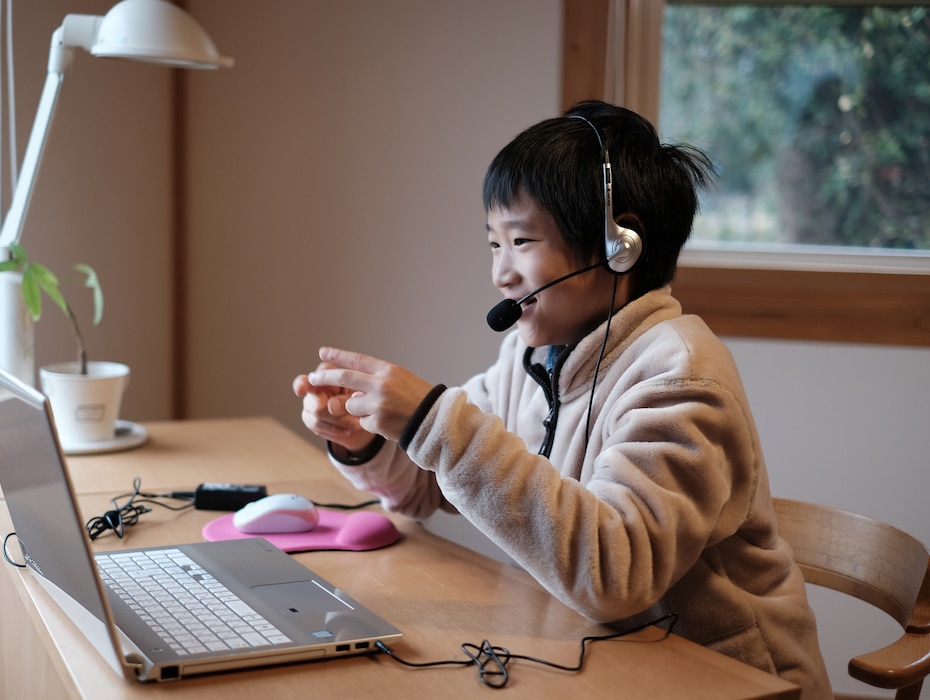Gen Z, the generation born between 1996 and 2010, represents the cohort studying in middle schools, high schools, and universities right now. This is a generation that grew up with internet access, and a good number of them don’t know a world without smartphones. As such, they have certain expectations of the remote learning process.
These expectations will shape the top remote learning trends for Gen Z in 2021. Read on to learn what schools and universities should be doing to keep Gen Z engaged and satisfied with remote learning.
Understanding Gen Z
The Pew Research Center defines Gen Z as people born between 1996 and 2010. They are more racially and ethnically diverse than any other generation. In addition, Gen Z is one of the most well-educated generations.
Researchers at the Pew Center note that members of Gen Z are somewhat similar to Millennials in their attitudes on social and political matters. Here’s the difference, though: Gen Zers are “digital natives”—they grew up with the Internet, and many of them grew up with smartphones. Younger members of Gen Z are on their smartphones frequently and expect that they’ll be able to connect to the internet everywhere they go.

Trend 1: Remote learning experiences with a human touch
Gen Zers have grown up with technology that allows them to personalize their experiences, such as Netflix. They don’t want to be thought of as just another number when they enter a virtual classroom. How does that impact remote learning at higher education institutions?
The right remote learning platform enables instructors to connect with students through chat, telephone, and email. Even if they’re not on campus, they can still connect one-on-one for a personalized education experience.
Trend 2: Students want their learning to be meaningful
Students in Gen Z want what they learn to matter to them. Material should be relevant and accessible.
Educators can address this desire by making the most of their virtual learning platforms. Market-leading virtual learning platforms integrate with learning management systems such as Canvas, Blackboard, D2L, or Moodle. That integration allows instructors to post supplementary materials including podcasts, videos, and articles, so students can immerse themselves deeper in what they’re learning.
Trend 3: Students want easy, accessible remote learning
In an August 2020 survey, 11% of Gen Z students didn’t feel confident about their access to reliable internet and technology. While many Gen Z students have access to computers and an internet connection so they can learn synchronously, not all of them do. Technology that enables asynchronous learning, so students don’t have to attend class live and can access materials at other times, will become more popular in 2021.

This is another situation in which the right virtual learning platform is crucial. The right virtual learning platform allows instructors to teach live and record themselves. After the class, they can upload the recording to a learning management system, so students can watch the recording whenever they have an internet connection.
In addition, it should be easy to access the remote learning platform. One of the benefits of RingCentral’s remote learning platform is that it offers one-click video and audio from any browser or the RingCentral app.
Trend 4: Increase students’ digital literacy
Just because Gen Z grew up with smartphones in their hands doesn’t mean they are digitally literate. The 2018 International Computer and Information Literacy study showed that only 2% of Gen Z students surveyed were at the highest level of computer and information literacy (meaning that they can work independently with technology to gather and manage information with precision and good judgment).
Students might be entering a virtual classroom with no sense of what a reliable source of information is, let alone what security measures they need to take to keep themselves safe during remote learning. That’s why it’s critical to use a remote learning platform with the highest levels of security built in. Instructors and students have peace of mind that confidential information is protected.
Trend 5: Remote learning as a supplement and replacement for in-person learning
Remote learning has been slowly gaining prominence over the past decade. More colleges and universities have offered online courses as well as entire online degree programs. However, it wasn’t until a global health crisis in 2020 that most students had to learn remotely.
Recovery has been somewhat slow, and going into 2021, there’s a high chance that many students at higher education institutions will be learning remotely for at least the next year. As such, universities and colleges can’t afford to neglect Gen Z students. They have to invest the time, effort, and resources into making the remote learning experience as positive as possible.
Again, the right remote learning platform creates an engaging experience for Gen Z students. Instructors can teach live, share their screen, and encourage student participation through live chat. In addition, students can connect with their instructors after class through chat, video conference, or phone calls. They can feel that they’re getting the full higher education experience wherever they are.
Trend 6: More transparent communication
Gen Z students are accustomed to having multiple communication channels available to them at all times. They expect that people in their lives will share information with them, and that communication will be transparent. Going forward, Gen Z’ers will demand more frequent and higher quality communication from their instructors and their colleges and universities.
A remote learning platform with team messaging, file sharing, unlimited conference calls, as well as video conferencing, chats, and phone calls makes it easy for instructors and administrators to share vital information with students and their families. These capabilities satisfy Gen Z students’ desire for clear communication and information, and meet families’ needs to understand remote learning plans.
RingCentral’s remote learning platform offers Gen Z students an excellent experience
RingCentral’s remote learning platform provides the features that Gen Z students want, such as live recordings, integration with learning management systems, and multiple communication channels. To learn more about our remote learning platform, get a demo.
Originally published Mar 22, 2021, updated Jul 25, 2024





